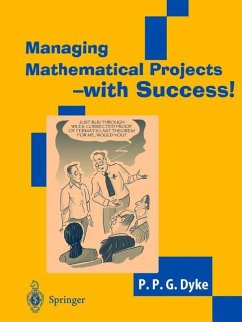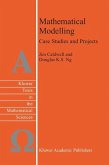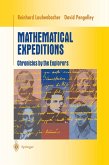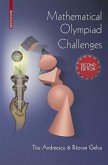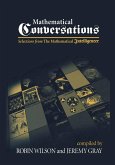Based on over twenty years' experience as supervisor and external examiner of project work in mathematics, Phil Dyke shows you how to get the best out of degree projects and case studies in mathematics. There are guidelines on setting up a project - be it individual or group - advice on time management, and tips on how to get the most out of verbal presentations and how to succeed in peer assessment. Pointers as to what the assessor will be looking for and advice on the all-important project write-up also provide an essential head start. This practical guide will be essential reading for students in the second or final year of a mathematics degree - or other courses with a high mathematical content - and a useful resource for lecturers and project advisors looking for ideas on how to devise, assess and manage projects.
From the reviews:
"More than 20 years of the author's experience in supervising and assessing mathematical projects have resulted in this book, the title of which can hardly be more eloquent. ... The features of individual projects, group projects and case studies are carefully described ... . It is a sheer joy reading it and appreciating the authors' refined style and humor. From the viewpoint of students, supervisors, as well as of assessors, this book must be unanimously marked as excellent." (EMS Newsletter, September, 2005)
"The text does discuss fully the supervision and assessment of both pure and applied mathematics projects, and, for me personally, the level of detail on this aspect has been the most useful feature of the book. ... Academic staff will certainly find this book relevant. For departments considering introducing final year projects based on mathematics, Managing mathematical projects gives invaluable guidelines. For departments already running such projects, the book is both useful and stimulating." (David Hood, The Mathematical Gazette, Vol. 91 (520), 2007)
"More than 20 years of the author's experience in supervising and assessing mathematical projects have resulted in this book, the title of which can hardly be more eloquent. ... The features of individual projects, group projects and case studies are carefully described ... . It is a sheer joy reading it and appreciating the authors' refined style and humor. From the viewpoint of students, supervisors, as well as of assessors, this book must be unanimously marked as excellent." (EMS Newsletter, September, 2005)
"The text does discuss fully the supervision and assessment of both pure and applied mathematics projects, and, for me personally, the level of detail on this aspect has been the most useful feature of the book. ... Academic staff will certainly find this book relevant. For departments considering introducing final year projects based on mathematics, Managing mathematical projects gives invaluable guidelines. For departments already running such projects, the book is both useful and stimulating." (David Hood, The Mathematical Gazette, Vol. 91 (520), 2007)

